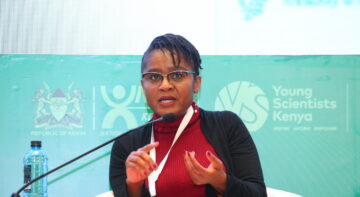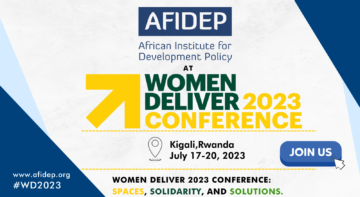Actualités

The role of the media fraternity in setting the demographic dividend agenda among the Kenyan public was the subject of a media forum held in Nairobi on 4th May 2017. The forum hosted by the Population Reference Bureau (PRB), brought together journalists and editors from across the country. The forum sought to foster better understanding of the demographic dividend paradigm among journalists and editors so they can take an active role in reporting on demographic dividend issues.
Population and development experts drawn from the National Council for Population and Development (NCPD) and the African Institute for Development Policy (AFIDEP) discussed the demographic dividend paradigm and how it relates to Kenya’s development. Experts from the Center for the Study of Adolescence (CSA) and PS Kenya then linked the demographic dividend conversation to adolescent sexual and reproductive health.
Adolescent sexual and reproductive health emerges as central focus
Of particular interest was media coverage on sexual and reproductive health issues among adolescents. Nearly all participants identified this issue as their main interest. In the recent past, reportage on sexual and reproductive health relating to adolescents/youth has elicited controversy from various quarters including religious groups. Calls for provision of contraceptives to adolescents/teenagers and access to comprehensive sexuality education have been the most emotive. The media forum was therefore timely as it provided a platform for journalists to understand sexual and reproductive health from a development perspective, and particularly how it fits in the demographic dividend conversation.
Speaking on behalf of the Ministry of Health, Dr. Joel Gondi, Head of the Reproductive and Maternal Health Services Unit, noted that health information is a public good and a human right for all Kenyans. He therefore urged journalists to ensure the public has access to accurate and well-packaged sexual and reproductive health information. Dr. Gondi further called upon journalists and development experts to collaborate in order to ensure the public has access to this information.
Agenda setting
Representing the Kenya Editors Guild, Michael Mumo, who is also the Editorial Director at Capital FM pointed out that the media should shape the agenda of the country for the benefit of society. He therefore appealed to his media counterparts not to lose focus of the value of the lives of Kenyans, more so as the country prepares for the general election in August. He further urged journalists to play a central role in placing sexual and reproductive health on the political agenda so as to ensure Kenyan leaders play their part in improving the sexual and reproductive health outcomes of Kenya’s adolescents. To facilitate this, journalists need to ensure stories are well researched, analysed and packaged.
Journalists’ experiences and perspectives
As journalists discussed their experiences and perspectives on reporting of sexual and reproductive health, it emerged that the lack of capacity to interpret complex scientific data is a key barrier to effective reporting on these issues, and development stories in general. Capacity building on use of data in journalism is therefore needed. Journalists also pointed to other challenges such as: difficulty accessing resource persons in development institutions to clarify study findings or elaborate on contextual issues, organisational policies [of the media] that impede coverage of controversial topics, cultural and/or religious norms, competition from politics and other « breaking news’ stories, among others.
Having set the pace for improved understanding of the demographic dividend and key aspects such as sexual and reproductive health among adolescents, the journalists made suggestions on how the media can move the demographic dividend agenda forward. For instance, they suggested that key messages be developed for different audiences such as policymakers, the youth, among others, as opposed to having a « one-size-fits all’ approach. Messages intended for the youth should be tailored in youth relatable language that also leverages on modern technology such as social media. Journalists also pointed to constant holistic reporting on the demographic dividend components as a key step towards putting the issue high on the country’s political agenda. Humanising stories relating to each of the demographic dividend pillars would also drill down the messages, not only among policymakers but also the general public.
Building relationships
This media forum set the pace for more engagements on improving reporting on development in Kenya. As noted by various individuals, journalists and development experts need to build and sustain long-standing relationships in order to ensure that the existing divide is bridged. To this effect, journalists were challenged to file quality stories in order to build their credibility and personal brands. Development experts also need to work towards bridging journalist capacity gaps in data journalism and addressing other barriers to effective reporting on development issues. Going forward, it is expected that engagement between media and development experts will be an ongoing process to ensure that development stories rise and stay high on Kenya’s sociopolitical agenda so as to set the country on a path towards sustainable development.
Related Posts




